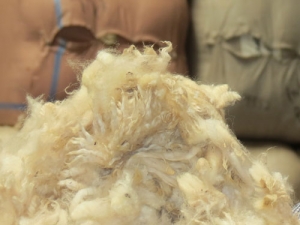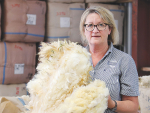The auction, which offered 6800 bales, was made up of 80% short second shear wools.
Despite a weaker New Zealand dollar compared to the last sale on June 25, with the weighted currency indicator down 1.96%, the bulk of the offering was firm to 2% easier.
Dawson says that the seasonal slow-down is due to the approach of European vacation period and well-stocked supply lines in China. This is limiting new orders for wool temporarily.
Fine crossbred shears were firm to 2% cheaper.
Good colour coarse fleece were 1.5% down with average style firm to 1% firmer. Poor styles were up to 1% cheaper. Longer coarse shears were firm to 1% dearer with good colour short types firm to 3% dearer.
Oddments ranged from 2% cheaper to 3.5% dearer.
The auction saw good competition, with exporters continuing to cover orders mainly destined to China, Australasia and Western Europe, supported by India, United Kingdom and the Middle East.
The next sale on July 16 comprises about 7800 bales from the South Island.







